Let’s be real—when someone says “follow your passion,” it often feels like vague advice pulled from a motivational poster. But what even is passion, really? Is it just something you enjoy doing on the weekends? Spoiler alert: nope. Passion goes deeper than hobbies. It’s not about what makes you smile—it’s about what makes you come alive.
So if you’ve ever stared at a blank career page wondering why nothing clicks, keep reading. Understanding what passion really means might be your first big “aha!” moment.
Passion Is Energy, Not a Job Title
Passion isn’t the title on your LinkedIn profile—it’s the energy behind the work you do. That “I could do this forever” feeling? That’s it.
You might feel energized when solving problems, creating something new, or helping people grow. The activity itself is less important than how it makes you feel. If you’re curious about how to find your passion, start paying attention to what gives you momentum—not just what keeps you busy.
Think of passion as fuel. You can pour it into a variety of vehicles—writing, designing, organizing, coaching—and they’ll all run differently. But the energy? That’s yours. And when you find work that matches that energy, it feels magical.
Hobbies Are Clues, Not Definitions
Here’s the thing: hobbies can be connected to your passion, but they don’t define it. You love baking? Great! That might point to creativity, nurturing, or the joy of process. But it doesn’t mean you need to open a bakery (unless you want to, of course).
If you enjoy gaming, you might love storytelling, strategy, or systems thinking. If you’re obsessed with plants, maybe you value growth, routine, or aesthetics. It’s less about the hobby itself and more about the why behind it.
When learning how to find your passion, start with your hobbies—but then peel back the layers. Ask:
What part of this activity do I love the most?
What does it help me express or feel?
Would I enjoy this if it were my job—or would that ruin the fun?
Your answers reveal patterns. Those patterns lead to aligned career choices.
Passion Evolves—And That’s a Good Thing
Repeat after me: “I don’t have to pick one passion for life.”
One of the biggest myths about passion is that it’s fixed. But passions evolve, especially as you grow, change, and learn more about the world. Maybe you used to love photography, but now you feel more drawn to storytelling through writing. That’s not quitting—that’s clarifying.
The key to discovering how to find your passion is allowing yourself to stay curious. Your career path doesn’t have to follow a straight line. In fact, the best ones rarely do. Every new experience teaches you something about what lights you up—or what definitely doesn’t. And both are valuable.
So if you’re in a moment of “I don’t know what I want,” don’t panic. It doesn’t mean you’re lost. It means you’re in motion.
You Don’t Have to Monetize Everything You Love
Let’s also clear something up: just because you’re passionate about something doesn’t mean it has to become your job.
Sometimes, your passion is the thing that restores you—not the thing that pays your bills. And that’s okay. There’s beauty in having passions that exist purely for joy, even while you explore ones that could turn into a fulfilling career.
The magic happens when you can blend your interests, values, and strengths into something sustainable. That’s how you find a career that feels aligned—not forced.
Why Self-Discovery Beats Job Boards
Let’s be honest—scrolling job boards can feel like online dating for your career. Too many options, vague descriptions, and a lot of “meh.” You click through listings that all start to sound the same, hoping the perfect role magically appears. Spoiler: it rarely does. The truth? Finding a job that lights you up starts with finding yourself.
If you’re ready to stop spinning in circles, let’s talk about why self-discovery is the real secret sauce—and how it can help you figure out how to find your passion before you even start job hunting.
Job Boards Show What’s Out There. Self-Discovery Shows What’s In You.
You can scroll through a thousand job posts and still feel stuck. Why? Because job boards tell you what employers want—not what you want.
Most listings are focused on requirements, not alignment. You see qualifications, not whether the role fits your values, strengths, or work style. That’s where self-discovery comes in. It’s like creating your inner job board—a space where you define the criteria.
Start by asking:
What do I enjoy doing, even when no one’s watching?
When do I feel most energized or in flow?
What kind of problems do I love solving?
These questions dig into your core motivations, strengths, and interests. The better you understand yourself, the easier it becomes to filter out jobs that look good on paper but don’t align with your long-term goals.
Self-discovery helps you build a foundation—so when you do start exploring job boards, you know exactly what you’re looking for.
You’re Not a Resume. You’re a Whole Human.
Job boards often make us feel like we need to fit a mold. The right keywords. The perfect experience. The exact job title. But your career should be built around who you are—not who a company wants you to be.
Self-discovery is where you reclaim that narrative. It’s where you stop asking, “How can I fit this job?” and start asking, “Does this job fit me?”
Maybe you’re a creative thinker who needs autonomy. Or maybe you thrive in collaborative, fast-paced environments. You might want work that feels meaningful, playful, structured—or totally flexible. You won’t find those answers on a job board. But you will find them within yourself.
Understanding your work style, values, and ideal lifestyle lets you search with intention. You’ll stop applying to roles just because you “could” do them and start applying to ones that feel like a genuine match.
That’s how you find your passion—by tuning into yourself before tuning into external expectations.
Self-Discovery Saves Time, Energy, and Burnout
Let’s face it—mindlessly applying to 50 jobs a week is exhausting. Worse, it can lead to landing a job that still feels… wrong. Then you start the cycle all over again.
But when you’ve done the self-reflection work upfront, you get way more strategic. You’ll recognize red flags faster, know what questions to ask in interviews and feel more confident saying “no” to opportunities that don’t align.
It’s kind of like using GPS instead of wandering around hoping to stumble upon the right path. You’re not just hoping for luck—you’re making informed, aligned choices based on what matters to you.
Self-discovery doesn’t mean you’ll have all the answers right away. But it gives you a powerful starting point—and helps you trust that every step forward is taking you closer to a career that fits.
Exercises to Pinpoint how to find your passion.
So, you want to figure out what lights you up—that thing that makes you feel excited, alive, and in your zone. But between job boards, social media noise, and your grandma’s “just be a lawyer” advice… it’s easy to feel more confused than ever.
Good news: You don’t need a five-year plan to start figuring things out. Sometimes, all it takes is a few fun, no-pressure exercises to help you tune into yourself. You know, you, the person behind the resume. Ready to play career detective? Let’s go!
The “Perfect Day” Visualization
One of the simplest ways to learn how to find your passion is to imagine your perfect workday from start to finish. Not your fantasy day sipping piña coladas on a beach (although we love that energy)—we’re talking a workday that feels fulfilling and joyful.
Close your eyes and picture this:
What time are you waking up?
What kind of work are you doing?
Where are you working—from home, a studio, or a coworking café?
Are you brainstorming solo or leading a lively team meeting?
Write everything down, even the small details. You’re not aiming for perfection—you’re aiming for patterns. Do you crave freedom? Creativity? Structure? Collaboration?
When you start seeing those themes pop up, you’re one step closer to understanding what lights you up.
The “Energy Tracker” Journal
Sometimes the best way to learn what energizes you is to track your energy, not just your time. This is a game-changer for anyone wondering how to find your passion without taking another personality quiz.
For one week, keep a simple journal (or notes app—no fancy notebook needed). At the end of each day, jot down:
Which moments gave you a boost today?
Did anything leave you feeling drained or low?
When did time fly without you noticing?
What felt dull, forced, or unnecessary?
After a few days, look for trends. Maybe you loved deep focus work and dreaded endless meetings. Maybe helping a friend brainstorm ideas gave you more joy than finishing your actual to-do list.
This kind of info is gold. You’ll start to uncover the activities and environments that naturally fuel your excitement and focus.
The “Childhood Clues” Reflection
Remember when you were a kid and you did things just because they were fun? Yeah—let’s tap into that.
Think back to the stuff you were obsessed with growing up. Did you build elaborate LEGO cities? Write dramatic short stories about dragons? Organize your sticker collection by color, size, and sparkle level?
These childhood clues often point to deeper passions you’ve carried all along—organization, storytelling, creativity, problem-solving. They’re easy to overlook, but they tell you so much about what brings you joy.
To try this exercise, make a list of everything you loved doing before adulthood kicked in. Don’t filter—just let your inner 10-year-old have the mic. Then ask yourself: How can these early loves translate into the work I do now?
The “Passion Mapping” Mind Dump
Sometimes the best way to sort your thoughts is to dump them all out. Passion mapping is like a brain download of your curiosities, ideas, and dreams—with zero judgment.
Here’s how to do it:
Grab a big sheet of paper (or a whiteboard, if you’re fancy). In the center, write: “What interests me right now?” Then branch out. Add categories like:
- Topics you love reading about
- Tasks you enjoy doing (even unpaid)
- Problems you want to solve in the world
- Skills you’ve always wanted to learn
Keep going until your brain feels a little lighter. Step back and look. What keeps popping up? What connections can you draw between ideas? You might realize you’re drawn to storytelling, advocacy, or creative problem-solving—and that’s the spark you’ve been looking for.
How to Explore New Paths Without Quitting Everything
Quitting your job to “find yourself” sounds super inspiring… until you remember rent exists. 😅
The good news? You don’t have to drop everything and run off to a mountaintop to explore new paths. In fact, learning how to find your passion often works best when you explore gradually—on your own terms, without blowing up your life.
Whether you’re career-curious, feeling unfulfilled, or just itching for something more, here’s how to dip your toes into new territory—no dramatic exits required.
Start Small with Passion Experiments
Think of your interests like a buffet—you don’t need to commit to a full plate before trying a few bites.
One of the easiest ways to explore new paths is by running passion experiments. These are low-pressure ways to test something new without needing to make it your “thing” right away.
Examples?
- Try a weekend class in something that’s always intrigued you.
- Volunteer for a project outside your usual skill set.
- Offer to shadow a friend in a completely different industry.
- Take a short online course (without worrying about perfect attendance or grades).
The idea is to stay curious. You don’t need to master it—you just need to see how it feels. Ask yourself: Did I feel energized? Was I excited to keep going? Or was it just a “meh” moment?
Every experiment brings clarity. Some will be nope, and some will surprise you. That’s the magic.
Use Your Current Job as a Playground
Before you hand in your two weeks, take a closer look at your current role. You might already have more flexibility to grow and explore than you think.
Ask yourself:
- Are there committees, side projects, or tasks I can try that align with my interests?
- Can I talk to someone in another department to learn about what they do?
- Is there a professional development budget I haven’t used yet?
For example, if you’re curious about design but work in marketing, see if you can help on a small creative campaign. Or if you’re drawn to coaching, offer to mentor a newer employee. These small steps can reveal what lights you up—without changing your title (yet).
You’d be surprised how much passion can grow when you use your current role as a test lab for future possibilities.
Build a “Passion Project” on the Side
Sometimes, the best way to explore something new is to do it completely outside of work—on your terms, your timeline.
This is where passion projects come in. They’re like creative side quests that help you explore ideas without any pressure to make money or impress anyone.
Want to start a blog, podcast, Etsy shop, or community group? Go for it. These projects are gold mines for discovering how to find your passion because they tap into what you’re naturally drawn to—without deadlines, bosses, or performance reviews.
And who knows? Your passion project might grow into something bigger. But even if it doesn’t, you’ll learn more about what excites you—and what doesn’t.
Make Time for Reflection (Yes, It Matters)
It’s easy to try new things and immediately jump to, “Is this it? Is this my purpose?!”
Slow down. The most important part of exploring new paths is giving yourself space to reflect.
Set aside time weekly (even 10 minutes) to check in:
- What felt good this week?
- What drained me?
- What would I love to do more of?
- What surprised me?
Jot down answers without judgment. Over time, patterns will emerge—and that’s where the real clarity comes from. When you’re learning how to find your passion, reflection is your compass.
If you’re serious about learning how to find your passion, tools like Daylio and Notion can become your personal discovery sidekicks. Daylio is a mood and activity tracker that helps you log how different tasks make you feel over time—so you can start seeing patterns in what genuinely energizes you (and what drains you). It’s perfect for spotting those hidden “aha!” moments. On the flip side, Notion offers a fully customizable space where you can create a passion dashboard—complete with vision boards, journal prompts, skill trackers, and career ideas. Whether you love structure or just want a digital place to brain-dump your dreams, these tools can help turn vague interests into clear insights—and give your passion search a seriously organized glow-up.
👉 Want help turning your insights into action? Check out my Career Compass tools and services designed to guide you from “I’m lost” to “I’ve got a plan.”




